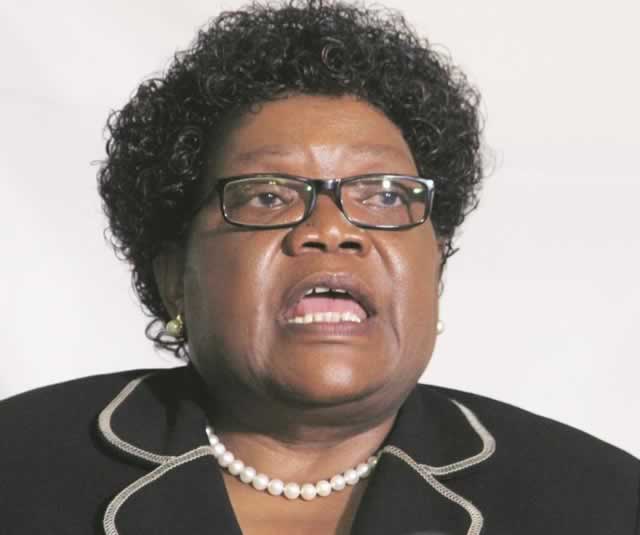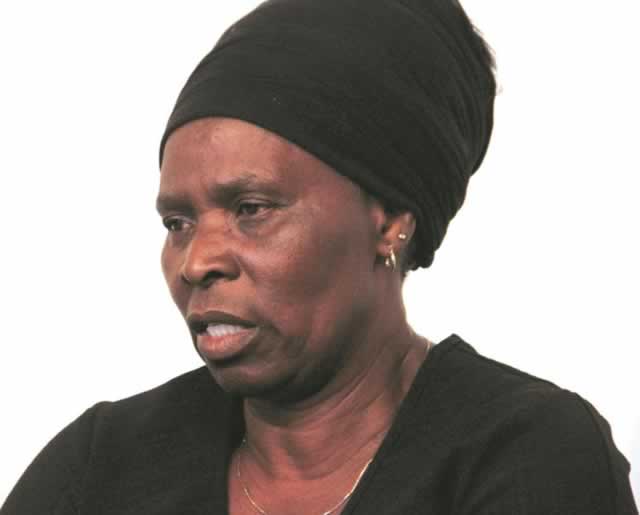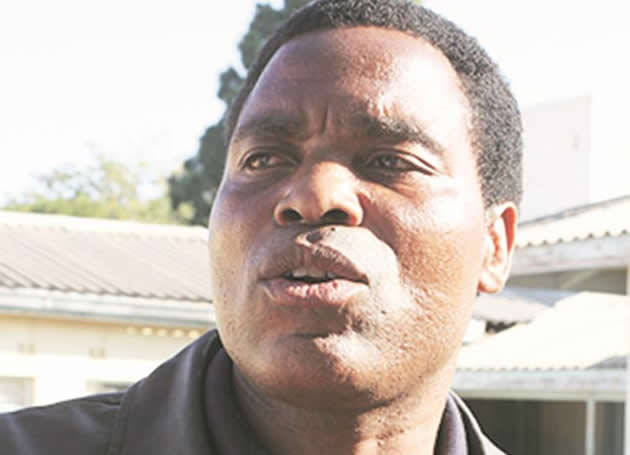Mujuru did nothing for us: Female war vets

Hildegarde The Arena
Long before Dr Mujuru made these claims to DW, some of her colleagues and seniors in the struggle, and all of them from the northeastern region, said she forgot the unwritten code of comradeship, for the gravy train became hers and hers alone, while women war veterans – her pioneers – are languishing in abject poverty.
The Zimbabwe People First presser-cum-launch has come and gone.
The writer reserves the right of analysis of the etymology and meaning of the party’s name. But, we can’t ignore some landmark venues and events of the past fortnight, for they reveal a lot about ZPF’s founding members and principles.
The ZPF leader, ex-Vice President Dr Joice Teurai Ropa Mujuru, unveiled her party at the upmarket Meikles Hotel in Harare. This was after granting interviews to the pirate radio station Studio 7 (Voice of America).
Days later, she was also interviewed by the German international broadcaster DW (Deutsche Welle). And, on March 12 they held a provincial rally in Harare’s Glen View high-density suburb.
These locations and their owners are telling. For example, Thomas Meikles was an important personality in settler colonial politics. But, to all intents and purposes, ZPF was birthed in the glitz and glamour of his Meikles Hotel, and not among the people as the name implies. Then, there is Glen View suburb and its excess baggage from the Abel Muzorewa Zimbabwe-Rhodesia era.
Life can be such a pretext, while time can change people and perceptions!
Since both locations are historical, representing different timeframes, this piece will also take Dr Mujuru back to the past, the period her comrades-in-arms allege she conveniently forgot in 1980, when she became the first woman in then Prime Minister Robert Mugabe’s Cabinet.
They claim that from 1980 to 2014, Dr Mujuru’s light failed to light up thousands more candles of her colleagues from the war days, colleagues she shared the trenches with.
In her interview with DW she said: “The revolution has been forgotten, buried and freedom fighters are angry with that. Having one of their own being Vice-President and being chucked out just like that . . .”
How ironic, since her colleagues allege that she also forgot and buried them as far back as 1980.
Long before Dr Mujuru made these claims to DW, some of her colleagues and seniors in the struggle, and all of them from the northeastern region, said she forgot the unwritten code of comradeship, for the gravy train became hers and hers alone, while women war veterans -her pioneers – are languishing in abject poverty.
This writer, together with Sunday Mail Deputy Editor Munyaradzi Huni between October 22 and December 2015 interviewed a number of these war veterans, and among them were some of the first Zanla women combatants to receive military training. We have already written parts of their narrative.
The interviews were not about Dr Mujuru, but we asked all of them whether going to the liberation was worth the while, and how they had benefited. Despite expressing satisfaction that they fought for the country’s Independence, they also clearly stated that the majority of living war veterans were suffering, and some of them had lost hope.
With the women combatants, we raised the following issues:
1. All the pioneer female war veterans from the early seventies were from the northeastern region, including Dr Mujuru. At Independence, they were honoured by having her as the first woman Cabinet minister. Why did they not take advantage of that to raise their issues with her, for onward transmission to Government?
2. When they noted, as they claimed, that she was not responsive to their plight and that of the region, did they seek audience with her?
3. Were they disgruntled and bitter just because Dr Mujuru had made it and was no longer in Zanu-PF?
Below are excerpts from the interviews with some of them: Cde Steria Dube (Esther Munyaradzi), Cde Lucy Tongai (Rosemary Siyamachira) and Cde Sarudzai Gomo (Flora Magunje-Mahachi).
Cde Steria Dube
“I still recall when I was in Mt Darwin, when we went to see her (Dr Mujuru) after she had visited the area. I told myself that I’d go and present my problems. I said to her, ‘“Comrade, we now have the land, but our major problem is that we don’t have implements to till the land.’
“But she said to me: ‘Endai munorima nemombe. (Go and use draught power).’
“When you have presented a genuine problem, and someone tells you to go and use draught power, as a right thinking person you know what that means . . . We were elated when one of us was appointed a Cabinet minister, because it was our region where the liberation war started. And for us to have one of us at the top was very pleasing. We told ourselves that this would lessen our problems. Asi, kwange kusingasvikike. (But, she was unapproachable).
“You have interviewed a number of us. Did any one of them tell you whether they received assistance from Cde Teurai?
“The problem is that when people get into certain positions, they become too comfortable. There are some who are genuinely concerned about people’s issues, but not all.
“When we were still in Mozambique, it was every comrade’s responsibility to ensure that the other comrade is fed. That was comradeship. Unfortunately, when we got back home, that comradeship vanished. It’s now one man for himself.
“So, we will continue to suffer and die in our poverty. Even our children are suffering.”
Cde Lucy Tongai
“Together with the other comrades, we are facing lots of problems considering how we suffered during the liberation struggle.
“Comrade chinenge chikorobho muZimbabwe muno. Anywhere, including in church, you won’t dare say that you are a freedom fighter. Unotozviramba, nokuti tiri vanhu vakadzikisirwa zvokupedzisira munyika muno umu.
“It was because we did not have education. If we were educated, maybe one of us would have spoken on behalf of us all. We would have continued to present our grievances, but we did not have education and we were looked down upon.
“We were very happy when Cde Teurai became the first woman Cabinet minister and then Vice President. We believed that the St Albert’s area and its people would be developed.
“I’m not backstabbing her, but (Cde) Teurai has done nothing for us to date. Teurai haana chaakatiitira, up to now.
“At one point, she invited all the members of the female General Staff through (Cde) Nyasha Chikwinya, and we thought that she had finally remembered us, and wanted to empower us, but nothing materialised.
“Saka, hatitaure nezvake nokuti hapana chaakatiitira. I’m not saying that she should have done something for me personally, but it would be a consolation if she had empowered at least two of us, so that we would know that she was giving back to the community – even sending some to school.
“I’m not talking about academic education, but setting them up into projects such as chicken rearing so that people would know that this was an area where the Vice President came from.
“I used to hear people from our area saying that she was doing nothing for them. Saka isusu aizoda kutiitira chii? . . . However, you get to a point when you can’t even feel pity for someone, because people have brains. They ask what she ever did for them all those years she was in Government. Hapana chaakatiitira!!
Cde Sarudzai Gomo
“Cde Teurai Ropa is our sister, although we were recruited before her, and we received military training before her. I come from Mt Darwin, and so does she. Their home in Dotito is about 10km from our home area in Nembire.
“But as female war veterans, we tried several times to reach out to Cde Teurai, but nothing materialised. My recollection is that most of the time, we used to go to Munhumutapa Building with the likes of Cdes Dadirai, Susan, Loice – the whole group of female members of the General Staff – and we were going to Mai Mujuru when she was still the Vice President.
“We would tell her our problems: ‘Amai tiri kutambura. Hatina mabasa, minda, dzimba, zvese!’ And, she responded enthusiastically, and they would note down our problems.
“She would give us a driver who would show us some of the projects that were underway – rearing chickens in Marondera, for example, and she urged us to do the same. We wanted to embark on such projects, but we told her that we would do it if we got start-up capital.
“She is our home girl, and she would have acted as our entry point in changing our status because she, unlike us, had been elevated. She should have been quick to understand our situation because we were in the trenches together.
“The whole group of female war veterans you spoke with used to meet with her, but there were no results from those meetings. She couldn’t even take one woman from the group to show that she was taking our problems seriously.
“I tell myself that we worked together at Chibawawa Refugee Camp. When we meet, we hug and we are very friendly, and she would call me ‘Sister’. But, it never goes beyond that.”
As poet Maya Angelou said; “I’ve learned that people will forget what you said, people will forget what you did, but people will never forget how you made them feel.”
These war veterans spoke their minds freely, and sometimes with lots of emotions. So, as Dr Mujuru’s star looks like it is rising higher, are her colleagues’ stars disappearing into oblivion?












Comments